About New Directions for Women
Women struggling with conditions such as depression, anxiety, PTSD or bipolar disorder can receive mental health treatment at New Directions for Women. These troubles are solved using a vast range of traditional and modern therapies such as cognitive behavioral therapy (CBT), dialectical behavior therapy (DBT) and individual counseling. This assists clients in attacking the source of their mental health issues directly. The clinic focuses on the mental and emotional health of every patient, allowing women to build healthy coping strategies along with an improved sense of overall emotional well being.
They also provide treatment for women through their substance abuse programs. Whether women are addicted to alcohol, prescription medications or illicit drugs, New Directions for Women offers many services to help support their recovery. The residential treatment program provides a structured environment in which women can completely dedicate themselves to their recovery. The program includes detoxification services, individual therapy, group counseling and holistic treatments such as yoga, mindfulness and art therapy. They even provide intensive outpatient programs (IOP) and partial hospitalization programs (PHP) tailored to women who could benefit from some ongoing support but would prefer a comfortable home setting.
One unique feature is their family program. This brings family members into the recovery process. Not only does this help women reconnect with loved ones, but it also gives families the tools to support their loved ones in their continued recovery.
New Directions also offers programs for pregnant women and mothers. They know that they need to provide more specialized support for women in these situations because these are individuals who need to care for their families while also getting treatment. This service ensures that women can concentrate on healing, knowing their children are also taken care of.
Latest Reviews
Rehab Score
Gallery
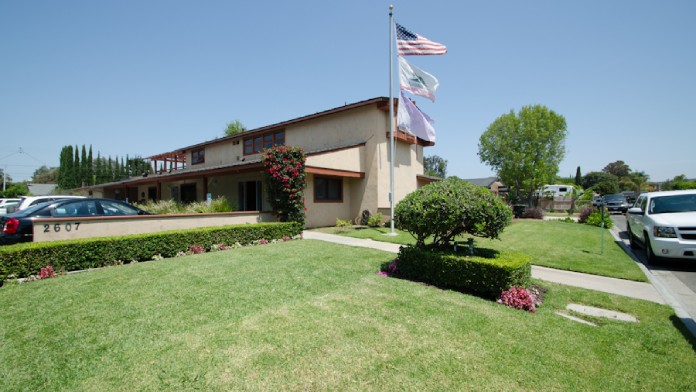
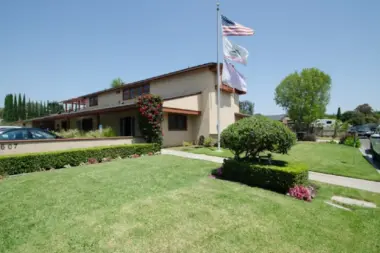
Accepted Insurance

Other Forms of Payment
Private insurance refers to any kind of healthcare coverage that isn't from the state or federal government. This includes individual and family plans offered by an employer or purchased from the Insurance Marketplace. Every plan will have different requirements and out of pocket costs so be sure to get the full details before you start treatment.
Self-pay involves paying for treatment out of your own pocket. You can use savings or credit, get a personal loan, or receive help from family and friends to fund your treatment. If you don't have insurance or your insurance plan doesn't cover a specific program, self-pay can help ensure you still get the care you need.
Military members, veterans, and eligible dependents have access to specific insurance programs that help them get the care they need. TRICARE and VA insurance can help you access low cost or no cost addiction and mental health treatment. Programs that accept military insurance often have targeted treatment focused on the unique challenges military members, veterans, and their families face.
Addiction Treatments
Levels of Care
Outpatient Programs (OP) are for those seeking mental rehab or drug rehab, but who also stay at home every night. The main difference between outpatient treatment (OP) and intensive outpatient treatment (IOP) lies in the amount of hours the patient spends at the facility. Most of the time an outpatient program is designed for someone who has completed an inpatient stay and is looking to continue their growth in recovery. Outpatient is not meant to be the starting point, it is commonly referred to as aftercare.
New Directions for Women intensive outpatient program offers comprehensive recovery skills and addiction counseling for women, who may or may not have already gone through a residential drug rehab treatment center. Women may enter the IOP program at any stage as the model accommodates people in various stages of early recovery. It is an excellent choice for women who may go to school or work during the day or evening.
Residential treatment programs are those that offer housing and meals in addition to substance abuse treatment. Rehab facilities that offer residential treatment allow patients to focus solely on recovery, in an environment totally separate from their lives. Some rehab centers specialize in short-term residential treatment (a few days to a week or two), while others solely provide treatment on a long-term basis (several weeks to months). Some offer both, and tailor treatment to the patient's individual requirements.
Drug and alcohol addiction often takes a heavy toll on one's body. Over time, a physical dependence can develop, meaning the body physiologically needs the substance to function. Detox is the process of removing drugs and/or alcohol from the body, a process that can be lethal if mismanaged. Medical detox is done by licensed medical professionals who monitor vital signs and keep you safe, healthy, and as comfortable as possible as you go through detox and withdrawal.
12-step programs are addiction recovery models based on Alcoholics Anonymous (AA). A number of substance abuse programs (including some drug and alcohol rehab centers) use the 12 steps as a basis for treatment. Beginning steps involve admitting powerlessness over the addiction and creating a spiritual basis for recovery. Middle steps including making direct amends to those who've been hurt by the addiction, and the final step is to assist others in addiction recovery in the same way. 12-Step offshoots including Narcotics Anonymous (NA), Cocaine Anonymous (CA), Dual Recovery Anonymous (DRA), Sex and Love Addicts Anonymous (SLAA) and Gamblers Anonymous (GA).
Continuing care for a patient after residential treatment has been completed is essential in maintaining sobriety and continuing the development of sober life skills. New Directions offers a number of alternatives for patients to continue care to support their recovery once leaving residential treatment. In addition to evening Intensive Outpatient and Intensive Sober Living Programs, New Directions offers Aftercare and works with industry professionals around the country to provide patients with the treatment and aftercare they need.
New Directions’ Intensive Sober Living Program combines transitional sober living with continued treatment services. This helps women transition to a sober lifestyle after completing primary or extended residential treatment. The program focuses on early recovery skills, relapse prevention, family involvement, individual therapy and 12 step involvement. Patients may enter the program at any stage as the model accommodates for people in various stages of early recovery.
Treatments
The goal of treatment for alcoholism is abstinence. Those with poor social support, poor motivation, or psychiatric disorders tend to relapse within a few years of treatment. For these people, success is measured by longer periods of abstinence, reduced use of alcohol, better health, and improved social functioning. Recovery and Maintenance are usually based on 12 step programs and AA meetings.
Drug rehab in California teaches participants constructive ways to stay clean and sober. Treatment revolves around helping individuals stop using the substance they are addicted to and learn healthy habits to avoid relapse.
Many of those suffering from addiction also suffer from mental or emotional illnesses like schizophrenia, bipolar disorder, depression, or anxiety disorders. Rehab and other substance abuse facilities treating those with a dual diagnosis or co-occurring disorder administer psychiatric treatment to address the person's mental health issue in addition to drug and alcohol rehabilitation.
A combined mental health and substance abuse rehab has the staff and resources available to handle individuals with both mental health and substance abuse issues. It can be challenging to determine where a specific symptom stems from (a mental health issue or an issue related to substance abuse), so mental health and substance abuse professionals are helpful in detangling symptoms and keeping treatment on track.
Opioid rehabs specialize in supporting those recovering from opioid addiction. They treat those suffering from addiction to illegal opioids like heroin, as well as prescription drugs like oxycodone. These centers typically combine both physical as well as mental and emotional support to help stop addiction. Physical support often includes medical detox and subsequent medical support (including medication), and mental support includes in-depth therapy to address the underlying causes of addiction.
Programs
Adult rehab programs include therapies tailored to each client's specific needs, goals, and recovery progress. They are tailored to the specific challenges adult clients may face, including family and work pressures and commitments. From inpatient and residential treatment to various levels of outpatient services, there are many options available. Some facilities also help adults work through co-occurring conditions, like anxiety, that can accompany addiction.
Young adulthood can be an exciting, yet difficult, time of transition. Individuals in their late teens to mid-20s face unique stressors related to school, jobs, families, and social circles, which can lead to a rise in substance use. Rehab centers with dedicated young adult programs will include activities and amenities that cater to this age group, with an emphasis on specialized counseling, peer socialization, and ongoing aftercare.
Clinical Services
Cognitive Behavioral Therapy (CBT) is a therapy modality that focuses on the relationship between one's thoughts, feelings, and behaviors. It is used to establish and allow for healthy responses to thoughts and feelings (instead of unhealthy responses, like using drugs or alcohol). CBT has been proven effective for recovering addicts of all kinds, and is used to strengthen a patient's own self-awareness and ability to self-regulate. CBT allows individuals to monitor their own emotional state, become more adept at communicating with others, and manage stress without needing to engage in substance abuse.
Experiential therapy is a form of therapy in which clients are encouraged to surface and work through subconscious issues by engaging in real-time experiences. Experiential therapy departs from traditional talk therapy by involving the body, and having clients engage in activities, movements, and physical and emotional expression. This can involve role-play or using props (which can include other people). Experiential therapy can help people process trauma, memories, and emotion quickly, deeply, and in a lasting fashion, leading to substantial and impactful healing.
The Family Program is grounded in the 12 step principles and encourages each family member in participating in self help meetings on a regular basis. In addition, the facility specializes in treating the children both living and not living with their mom throughout their treatment experience. During their children’s treatment experience, they will receive early intervention services and individual treatment services that address each child’s individualized needs. Children will receive counseling services that assist each youngster in building emotional strength and deepening their resilience. Services are provided to children utilizing an array of therapies such as: art, storytelling, role playing, recreation and journaling. School age children are enrolled in Newport Mesa school district and are encouraged to develop healthy participation in extra curricular activities, summer camp programs, and educational programs. Lastly, our children also participate in 12 step based programs.
Group therapy is any therapeutic work that happens in a group (not one-on-one). There are a number of different group therapy modalities, including support groups, experiential therapy, psycho-education, and more. Group therapy involves treatment as well as processing interaction between group members.
In individual therapy, a patient meets one-on-one with a trained psychologist or counselor. Therapy is a pivotal part of effective substance abuse treatment, as it often covers root causes of addiction, including challenges faced by the patient in their social, family, and work/school life.
Life skills trainings involve all the skills a person must have in order to function successfully in the world. These include time management, career guidance, money management, and effective communication. Truly successful addiction recovery is based on the ability to not only live substance-free, but to thrive. Life skills teaches the practical necessities of functioning in society, which sets clients up for success in life, and therefore sobriety.
Nutrition therapy, aka medical nutrition therapy (MNT), is a way of treating physical, emotional, and medical conditions through diet. Specific dietary plans are designed by professional nutritionists or registered dietitians, and patients follow them in order to positively affect their physical and mental health.
Trauma therapy addresses traumatic incidents from a client's past that are likely affecting their present-day experience. Trauma is often one of the primary triggers and potential causes of addiction, and can stem from child sexual abuse, domestic violence, having a parent with a mental illness, losing one or both parents at a young age, teenage or adult sexual assault, or any number of other factors. The purpose of trauma therapy is to allow a patient to process trauma and move through and past it, with the help of trained and compassionate mental health professionals.
Amenities
-
Private Setting
-
Yoga Studio
-
Spa
-
Private Rooms
Staff & Accreditations
Staff

Elizabeth Steele
Chief Executive Officer

Heather Black-Coyne
Chief Clinical Officer
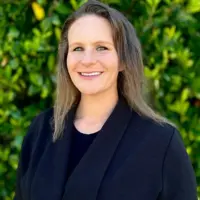
Kirsten Eschen
Director of Compliance & Program Operations

Katie Ronquillo
Director of Admissions

Lauren Davis
Director of Finance
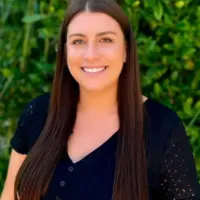
Lexi Larison
Director of Business Development
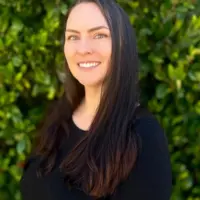
Dr.Stefani LaFrenierre
Medical Director

Rocio Ocampo-Giancola
Clinical Supervisor
Accreditations

The Commission on Accreditation of Rehabilitation Facilities (CARF) is a non-profit organization that specifically accredits rehab organizations. Founded in 1966, CARF's, mission is to help service providers like rehab facilities maintain high standards of care.
CARF Accreditation: Yes

The National Association of Addiction Treatment Providers (NAATP) is a professional association that represents organizations in the field of addiction services. Founded in 1978, NAATP's mission is to advance addiction services and ensure that high-quality addiction treatment is available and accessible.
NAATP Member: Yes
Member ID: 356
Contact Information
2607 Willo Lane
Costa Mesa, CA 92627









